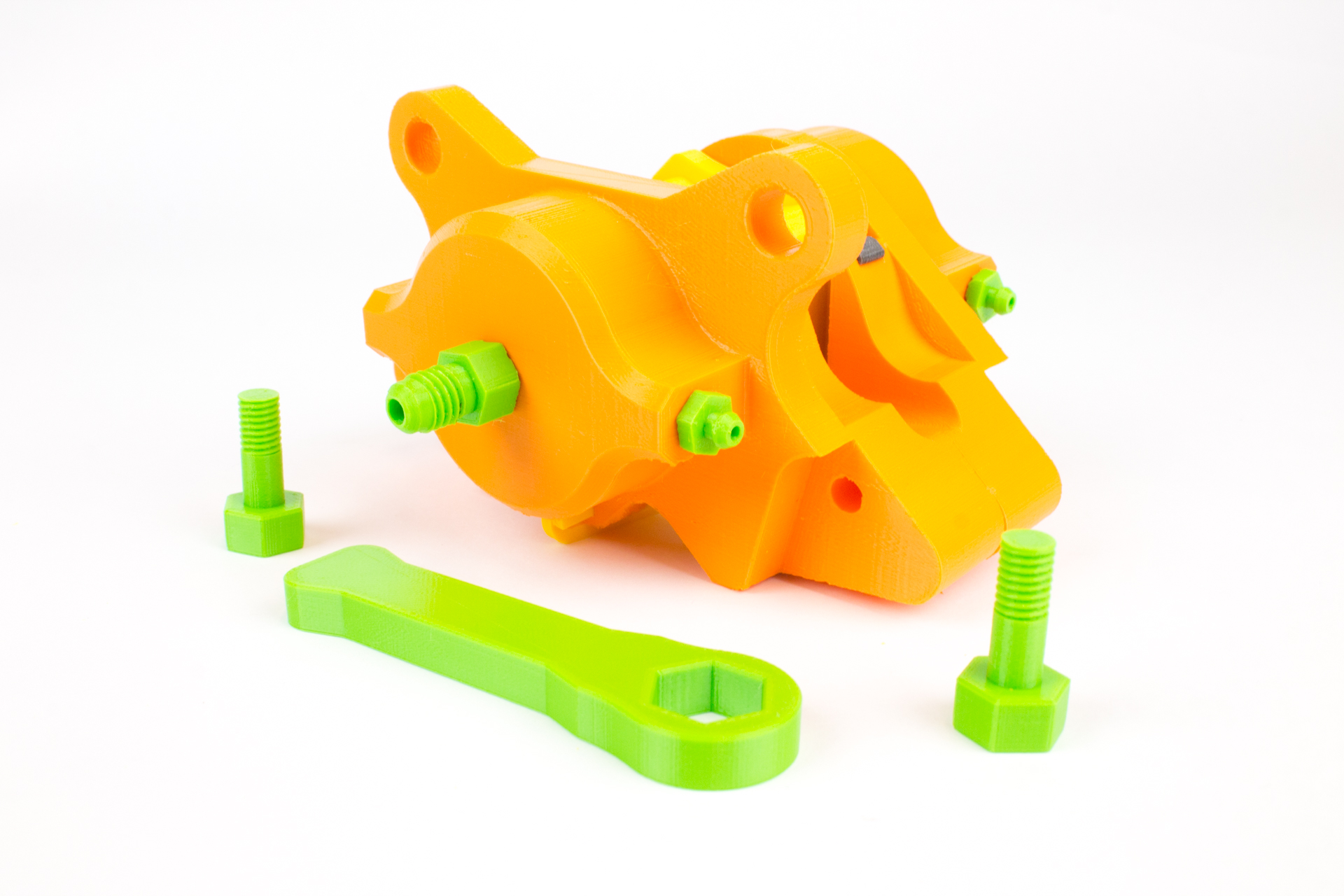
One of the noble applications of 3D printing in general is education. Chris Halliday has, with this in mind, designed an educational brake caliper, which we used for a visual demonstration, printed with various nGen colors:
Design: http://www.thingiverse.com/thing:1362673
Printed on Ultimaker 2+ with nGen Yellow, Orange, Gray Metallic and Light Green.
This brake caliper is not only a nice visual demonstration to 3D print for yourself, it also comes with detailed documentation with regards to printing, assembly and even how it works. It’s a learning experience which is suitable for grades 8 up to 12. It even comes with it’s own brake caliper quiz & answer sheet! Check out the Thingiverse link for Chris’ detailed tutorial!
Check out Chris’ 3D Hub here.
nGen was released a little over a year ago and is an all-round filament which has many advantages over, say, a PLA. The temperature resistance is over 80 degrees C and it works on most printers with a heated build plate. nGen is a low-odor, styrene-free material uniquely suited for 3D printing enthusiasts, particularly those who need the flexibility to print within a wide processing temperature range. With nGen you will have good flow properties through the printer nozzle—even at lower temperatures than some other polymers require. These properties make nGen more workable at a wider breadth of temperatures, producing reliable results and resulting in less waste. Visual prototyping has never been better than with nGen.
nGen is made with Eastman Amphora™ 3D polymer AM3300, part of a range of co-polyesters developed with Eastman Chemical Company for 3D printing. Amphora co-polyesters are low-odor, styrene-free choices that are uniquely suited for 3D printing applications. Aside from nGen, we have colorFabb_XT, colorFabb_HT and the semi-flexible nGen_FLEX in our portfolio.
Eastman has done an extensive study about off-gassing during 3D printing. You can find an extract of the results here.
With Amphora, items can be created that are more functional, more durable, more efficient and attractive. You can find more information about co-polyesters in the article we published last summer: What we talk about when we talk about co-polyesters.
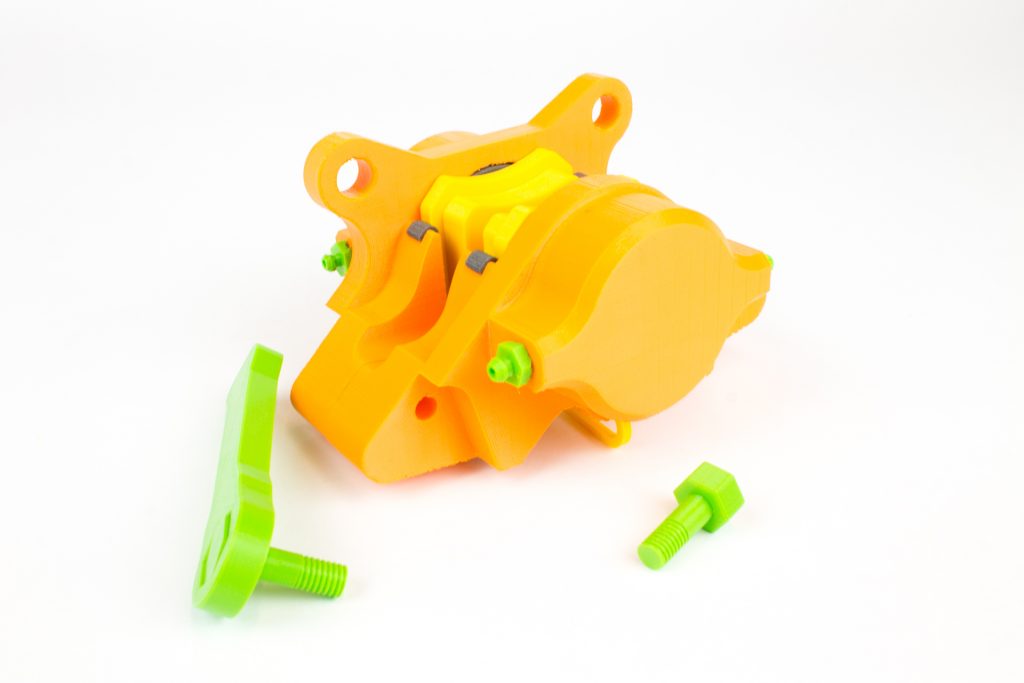
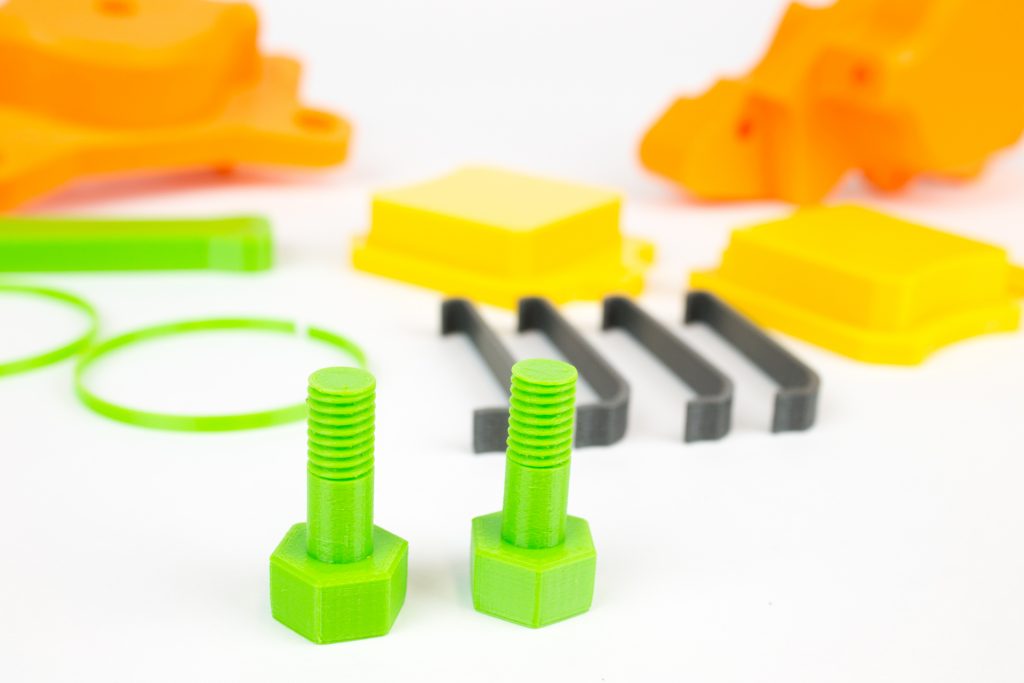
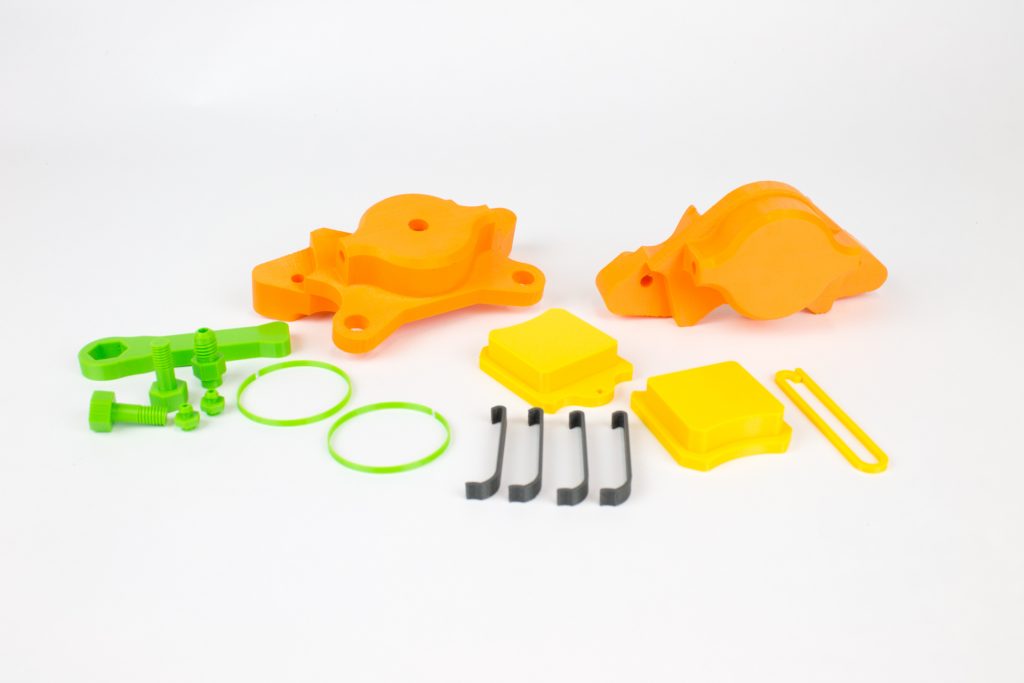
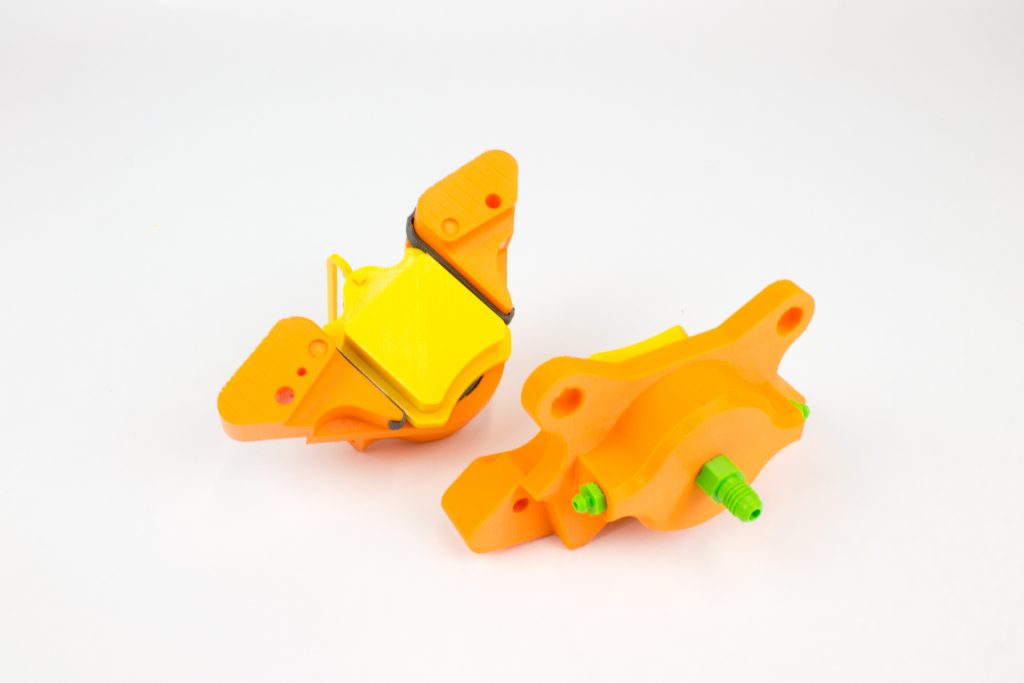
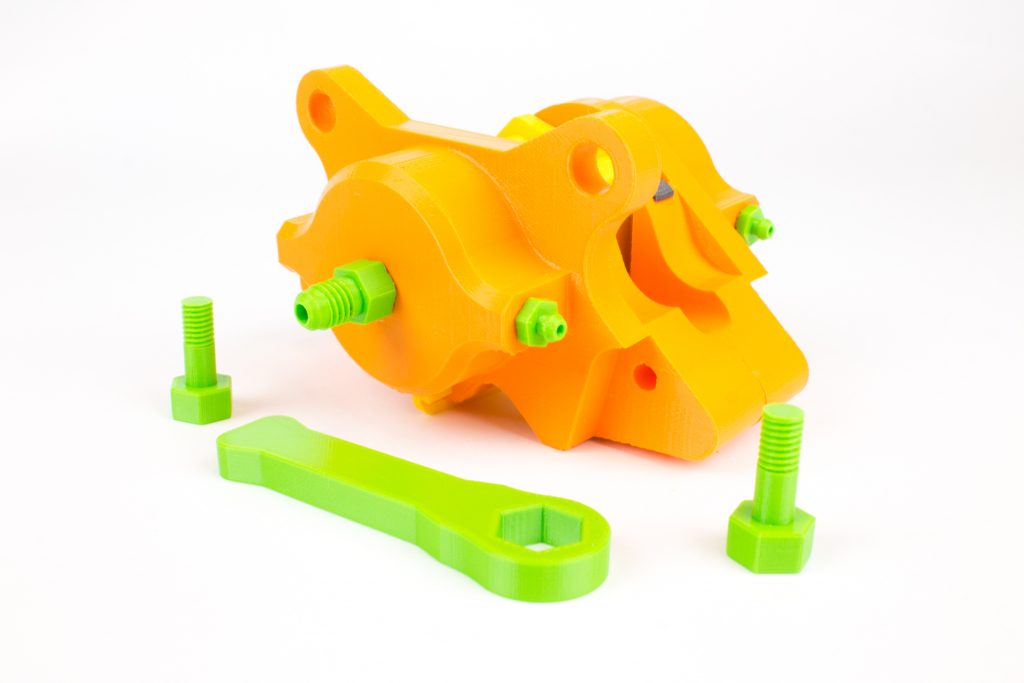
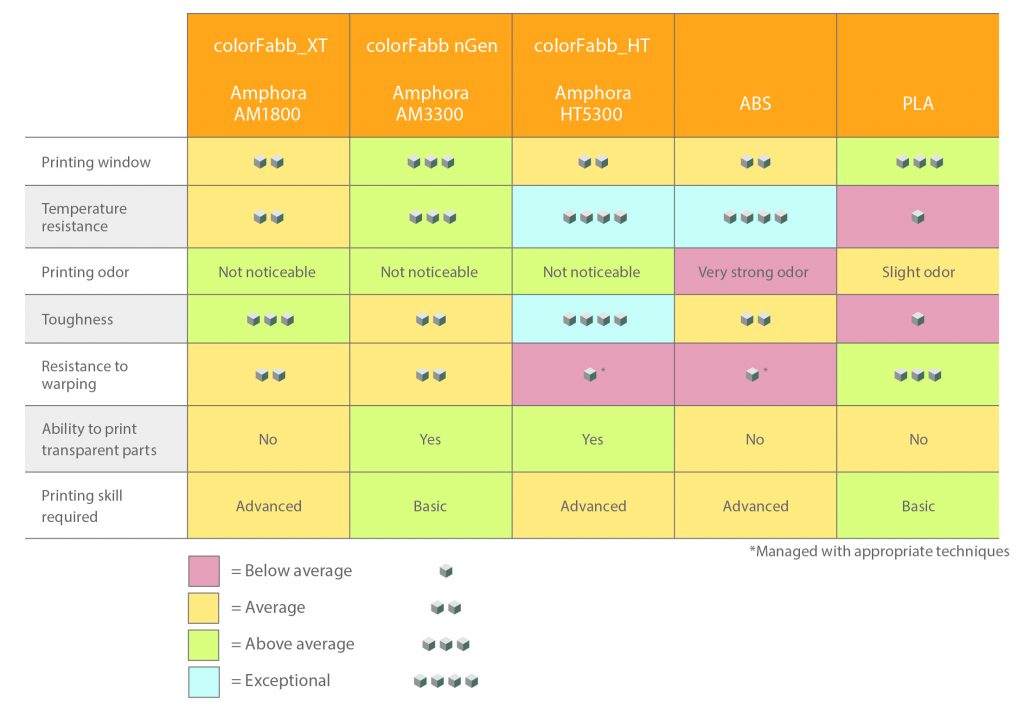
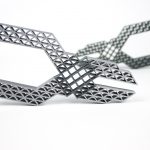
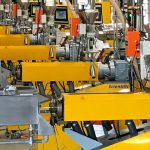
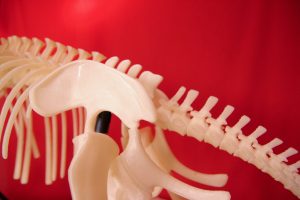



No comment yet, add your voice below!